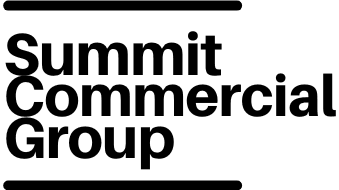Tax deadlines can sneak up on even the most organized businesses. One missed date could mean hefty penalties — or worse, a lien on your property. Whether you manage a warehouse, retail center, or office complex, knowing when to pay is just as critical as knowing how much.
This guide cuts through the confusion to help you stay compliant, save money, and avoid legal headaches.
Table of Contents
ToggleWhen Are Property Taxes Due?
Commercial property taxes are typically due in late fall or early winter, with a small discount period if paid early. After that, a grace window often allows full payment at face value before late penalties begin. Always check with your local tax authority for exact dates and payment tiers.
When Are Commercial Tax Bills Issued?
Most taxing jurisdictions issue commercial property tax bills annually, typically in the fall, between late October and early November. These bills outline the assessed value of your property, the tax rate applied, and the total amount due. The delivery method varies: some send physical copies via mail, others offer digital access through a county or municipal portal.
For business owners, timing is everything. Missing the bill in your inbox can mean missing out on early payment discounts and getting hit with unnecessary penalties. Some areas allow you to designate a billing contact or accountant to ensure the invoice doesn’t get lost in internal mailrooms or executive clutter.
A few years ago, I worked with a small logistics firm that missed their tax notice because it landed on the desk of a now-retired facilities manager. By the time the CFO discovered it, they had already accrued a 5% penalty simply because the envelope sat unopened for weeks. Since then, they’ve set up automatic alerts and e-billing through their local tax portal. It’s a simple step, but it saved them thousands the following year.
To avoid surprises, it’s smart to mark your calendar and confirm your business’s billing contact info is up-to-date with your local tax office or assessor’s website.
Discount and Full-Payment Periods for Business Properties
Most commercial property tax systems offer a short window where early payment earns a small percentage discount usually around 2%. This early payment period typically falls within the first 30 to 60 days after tax bills are issued. Businesses that pay during this timeframe benefit from immediate savings, which can be substantial depending on the property’s assessed value.
After the discount window closes, the tax enters what’s known as the face-value period. During this phase, property owners must pay the full amount owed, with no penalty or interest added essentially a grace period. This usually lasts for another 30 to 60 days before late fees begin to accumulate.
How to Calculate Your Commercial Property Tax and Savings
Understanding how commercial property tax is calculated helps you forecast expenses and take advantage of early payment discounts. Here’s a quick way to estimate what you owe:
-
Find Your Assessed Value:
This is determined by your local assessor based on your property’s market or income-producing value. -
Apply the Tax Rate (Millage):
Multiply the assessed value by your jurisdiction’s millage rate (for example, 0.012 for 1.2%).
Formula:
Property Tax = Assessed Value × Tax Rate
-
Factor in Early Payment Discounts:
If your area offers a 2% early payment discount, subtract it from the total.
Example:-
Assessed Value: $1,000,000
-
Tax Rate: 1.2% (0.012) → $12,000
-
Early Payment Discount (2%): $240
Final Amount Due: $11,760
-
-
Consider Penalties for Late Payments:
A 5% late penalty would add $600 to the same bill, raising it to $12,600.
If you manage multiple properties, using a property tax calculator or spreadsheet template can help automate these figures. Consistent tracking allows you to forecast cash flow and avoid unpleasant year-end surprises.
For example, if your jurisdiction mails tax bills in early November, the discount period might extend through early December, and the face-value period might end in early January. It’s critical for finance departments to align their internal payment cycles with these external deadlines. Even one day late can shift a six-figure tax bill into penalty territory.
Pro tip: if you manage multiple commercial properties across jurisdictions, build a calendar of each location’s discount and full-payment dates. Automating reminders through accounting software or shared finance calendars helps ensure timely payments and preserves liquidity.
Penalties for Late Commercial Property Tax Payments
Late payments on commercial property taxes can trigger a cascade of financial consequences—starting with penalties and often escalating to legal actions. Once the grace (face-value) period ends, jurisdictions commonly impose an initial 5% late penalty, calculated on the total unpaid amount. If the balance remains unpaid after a second deadline, this penalty often increases to 10% or more, and additional fees may be added by local enforcement agencies, such as a sheriff’s office. According to Kentucky’s Department of Revenue, unpaid property taxes become delinquent on January 1, and a 5% penalty applies through the month. After January 31, an additional 10% sheriff’s fee is added, and unpaid bills are transferred to the county clerk on April 15, potentially leading to lien sales
In many counties, especially those with strict enforcement, a sheriff’s fee typically another 10% can be added to cover administrative costs related to collection. This quickly transforms a missed $100,000 tax bill into a $120,000 liability. Worse yet, if the account remains unpaid for several months, it may be transferred to a county clerk or third-party collector, where interest, lien filing costs, and court fees start compounding.
Unlike residential accounts, commercial properties rarely receive leniency. Business owners are assumed to have dedicated accounting teams, so late payment is treated as noncompliance rather than oversight. Some jurisdictions may even initiate tax lien sales, potentially placing ownership at risk if left unresolved.
To avoid this, monitor your due dates closely. Integrating property tax deadlines into your accounts payable workflow is essential for maintaining compliance and avoiding costly surprises.
Accepted Payment Methods for Commercial Accounts
Most tax authorities offer multiple payment channels tailored to accommodate the needs of commercial property owners. These typically include ACH transfers, credit or debit card payments, mailed checks, and in-person drop-offs at designated government offices. Some counties also offer dedicated commercial payment portals with account dashboards, downloadable statements, and scheduled payment options.
For large commercial holdings or portfolios managed by third parties, ACH and wire transfers are often preferred. These methods allow for high-value transactions, are trackable, and can be automated within corporate banking systems. However, many jurisdictions impose convenience fees for credit card payments ranging from 2% to 3% which can add significant cost to high-balance bills.
Commercial property owners should also be aware of processing times. Payments made online typically post faster, but mailed checks may take several days to process, especially during peak collection periods. If your jurisdiction offers drop box options or satellite offices, these can be useful for last-minute payments provided you retain a time-stamped receipt.
Some counties also apply returned check fees, often $30–$50, which can further complicate corporate audits and reconciliations. It’s best practice to designate a dedicated property tax payment account, maintain sufficient reserves, and review payment confirmation emails or receipts promptly.
Annual Tax Calendar for Commercial Properties

Understanding the annual tax cycle is essential for managing commercial property finances effectively. While specific dates vary by jurisdiction, the structure of the calendar remains largely consistent across the country. Here’s a breakdown of the key phases:
- Assessment Period (Spring to Summer):
Commercial properties are typically assessed in the first half of the year. Local assessors determine market value based on income potential, comparable sales, and physical condition. These values form the basis of your tax liability. - Open Inspection and Appeal Window (Late Spring):
After assessment notices are mailed, most jurisdictions allow a brief window, often 30 days, for property owners to inspect records and file appeals. This is the only time to challenge assessed values before bills are issued. - Tangible Property Return Deadline (Mid-Year):
If your jurisdiction requires a tangible property tax return (equipment, furnishings, inventory), these are usually due by May 15 or June 1. Penalties apply for late or inaccurate filings, and noncompliance may result in estimated assessments. - Tax Bill Issuance (Fall):
Tax bills are typically issued between late October and early November. This triggers the countdown for early payment discounts, face-value periods, and eventual penalties. - Final Payment Deadline (Winter):
Depending on your location, the full amount is due sometime between December and early January. Late payments initiate a graduated penalty structure, with escalating fees and potential legal action.
Building an internal calendar around these milestones and assigning accountability within your finance or operations team—is one of the most effective ways to stay ahead of tax obligations and avoid costly surprises.
Disputing Commercial Property Tax Assessments
If you believe your commercial property has been over-assessed, you have the right to dispute the valuation but timing and preparation are critical. Most jurisdictions allow appeals only during a short “open inspection” window following the release of assessment notices, typically in the late spring or early summer.
Start by reviewing your assessment notice for errors in square footage, use classification, depreciation factors, or comparable property values. If something seems off, gather documentation: recent appraisals, vacancy rates, rental income data, and any major capital expenses that could impact valuation. The more evidence you provide, the stronger your case.
Next, file a formal appeal with the local Board of Assessment Appeals or equivalent authority. The process may include an informal review, followed by a hearing. Some jurisdictions require professional representation, while others allow property owners to present their own case. Either way, be prepared to argue not just that the valuation is high, but why it’s inconsistent with market or operational realities.
Keep in mind that commercial assessments are often based on income-producing potential, so arguments grounded in net operating income (NOI), cap rates, and market rent are far more effective than emotional appeals or general complaints.
Finally, once the appeal window closes, your ability to challenge the assessment for that year is usually gone. Set calendar reminders for future cycles, especially if you’ve made renovations, faced tenant turnover, or experienced changes in market conditions that could impact valuation.
Final Thoughts
Staying ahead of commercial property tax deadlines isn’t just about avoiding penalties it’s about smart financial stewardship. From recognizing key billing dates to leveraging early payment discounts and knowing your rights during assessment, proactive planning makes a measurable difference to your bottom line.
While rules vary slightly across jurisdictions, the underlying structure remains predictable. Create a reliable system within your business, whether through automated alerts, a tax calendar, or professional oversight, and you’ll never be caught off guard again.
When you treat property tax management as a strategic function rather than an afterthought, your business stays compliant, efficient, and ready to reinvest.
Need Expert Help Navigating Commercial Property Taxes in Louisville?
Managing tax timelines, appeals, and property assessments takes more than a calendar it takes local expertise. If your business owns or plans to acquire commercial real estate in Louisville, Kentucky, don’t go it alone.
Work with Raphael Collazo — your trusted Louisville commercial real estate advisor to streamline your investment, stay compliant, and maximize returns.
Frequently Asked Questions for Commercial Property Owners
Can I pay my commercial property taxes in installments?
In most cases, no. Commercial property taxes are expected to be paid in full by the designated due date. While some jurisdictions offer installment plans for residential accounts, those programs typically exclude commercial entities. However, in rare cases involving economic hardship or court-approved agreements, partial payments may be considered.
What happens if my property is held in escrow?
For properties financed through commercial lenders, taxes may be paid via an escrow account managed by the bank. That said, owners are still responsible for verifying payment. If the escrow account is underfunded or the lender misses a deadline, the penalties fall on the property owner, not the bank.
Are there exceptions for newly acquired properties?
Yes. If your business acquires a property mid-year, you’re typically responsible for taxes prorated from the date of transfer. Ensure that the title company or your legal counsel confirms payment responsibilities during the closing to avoid disputes or double billing.
Can penalties be waived?
Rarely. Commercial property owners are held to stricter standards than their residential counterparts. Penalty waivers are usually granted only in the case of clerical error, overpayment, or documented systemic failure, such as an unrecorded property sale or misdirected billing.
What should I do if my business moves offices and misses a tax bill?
Immediately update your address with the local assessor’s office. Relying solely on mail forwarding is risky. Also consider enrolling in any available digital billing systems to receive statements electronically going forward.

